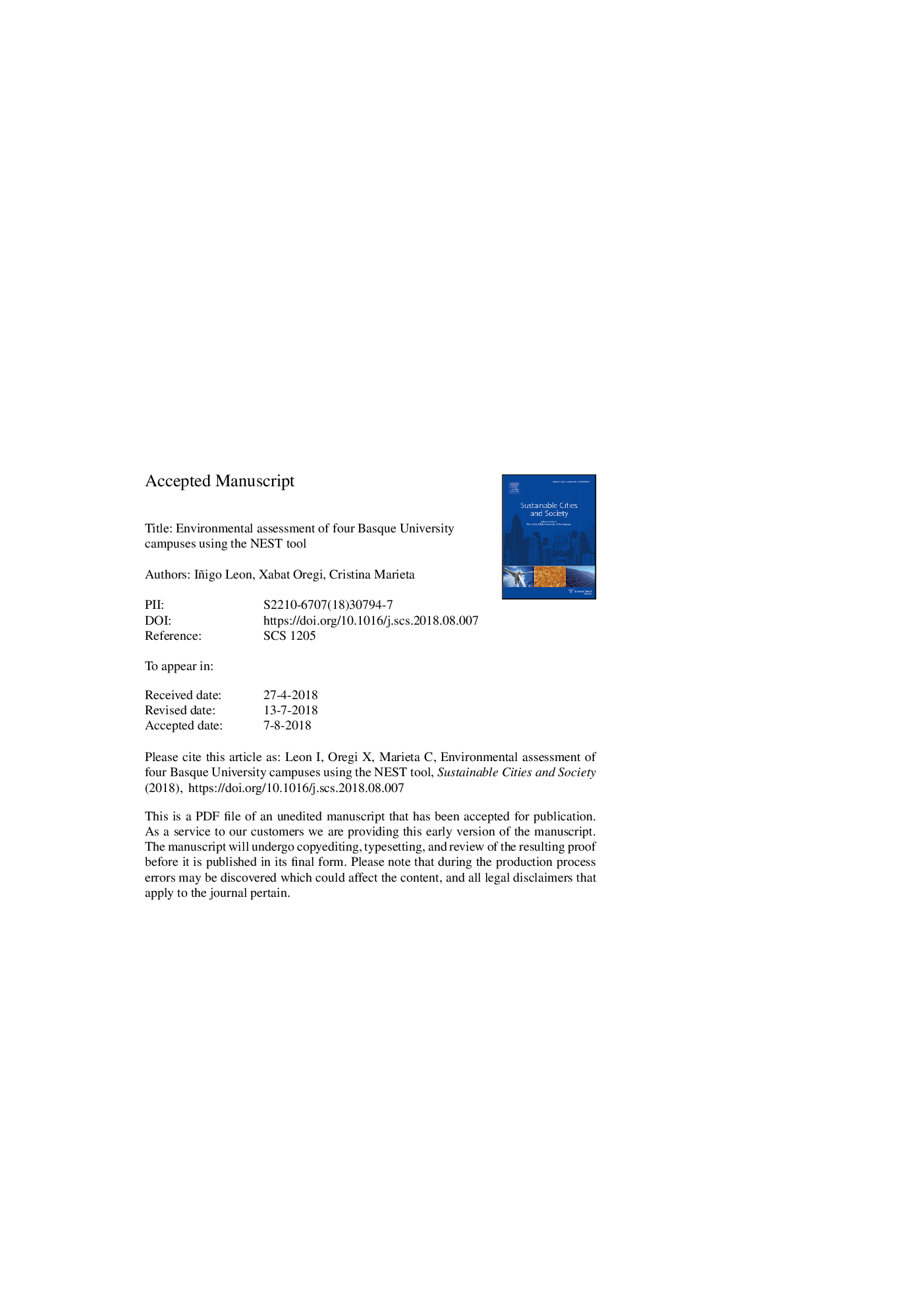| Article ID | Journal | Published Year | Pages | File Type |
|---|---|---|---|---|
| 11001287 | Sustainable Cities and Society | 2018 | 32 Pages |
Abstract
Over the past few years, town planners and architects have been facing increasing demands regarding the performance of urban development projects in terms of environment, quality of life and socio-economic issues. For this reason, several tools capable of assessing their environmental impacts have been developed. NEST (Neighbourhood Evaluation for Sustainable Territories) is a particularly interesting one since it permits performing simultaneous environmental, economic and social analyses at a district scale, in addition to evaluating refurbishment scenarios, with a life cycle perspective. Nowadays, universities can be considered as “small cities” due to their large size, population, and the many complex activities that take place on the campuses; thus, they have a direct and indirect impact on the environment. In this article, the authors present the results obtained from the environmental evaluation of the four campuses of the University of the Basque Country (UPV-EHU), using NEST. First, the evaluation consisted of analysing baseline environmental impacts of the four campuses, and then, in order to reduce environmental impacts, the authors presented numerous refurbishment scenarios for the campuses, according to national and international declarations concerning sustainable development in higher education.
Related Topics
Physical Sciences and Engineering
Energy
Renewable Energy, Sustainability and the Environment
Authors
Iñigo Leon, Xabat Oregi, Cristina Marieta,
